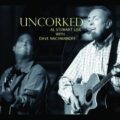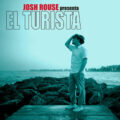Sandy Sasso – Sandyland
Posted on Sunday, September, 19, 2010 | Comments Off on Sandy Sasso – Sandyland
SANDY SASSO has been one of the best vocalists on the New Jersey scene for many years. She has a new album out titled Sandyland (Charlie Boy Records – 003), and it is sure to win an even wider audience for her. The choice of material is interesting and eclectic. It is not often that you hear Gilbert & Sullivan on a jazz vocal album, but when you hear Sasso sing “Things Are Seldom What They Seem,” it makes perfect sense. Her version of “Artificial Flowers” brings a new life to this song from the Broadway show Tenderloin. One of her two original songs on the disc, “Walkin’ on Up (to Heaven’s Door),” is a heartfelt spiritual tribute to the victims of the Haitian earthquake. Sasso’s strong performances are abetted by a fine support group including Rio Clemente, who also provided input on several of the arrangements, on piano and B3 organ, Bill Easley on reeds, Mac Gohellon on trumpet, Steve Nelson on vibes, Calvin Jones on bass, Chembo Corniel on percussion, and Steve Johns on drums. Sasso and company have produced a well programmed and consistently entertaining visit to...
KAT EDMONDSON
Posted on Sunday, August, 1, 2010 | Comments Off on KAT EDMONDSON
Kat Edmonson may be a young jazz singer, but she is already a confident interpreter of song. Her debut album, “Take to the Sky,” brims with originality. But first her pipes. It is tempting to compare her to other young chanteuses like Madeleine Peyroux, but Edmonson, who lives in Austin, Texas, sounds more like Blossom Dearie to these ears. Though her voice isn’t as high and chirpy as Dearie’s, the intonations and enunciations are remarkably similiar. More striking, though, is how Edmonson approaches her songbook. Employing a series of descending minor chords, her arrangment of “Summertime” is ominous and dark – not at all like a typical summer day. “Just One of Those Things” is done in half-time with a backbeat, which makes the vocals seem all the faster. Edmonson goes beyond the standards, too. She turns the Cure’s “Just Like Heaven” into a slow bossa nova, the Cardigans’ “Lovefool” into a rumba, and John Lennon’s “(Just Like) Starting Over” into a breathy ballad. For all the inspired arrangements, the piece de resistance is the hidden track, a gorgeous a capella rendering of “Spring Can Really Hang You Up the Most.” That one really is just like heaven. (Out...
KATHRYN WILLIAMS, THE QUICKENING
Posted on Sunday, July, 25, 2010 | Comments Off on KATHRYN WILLIAMS, THE QUICKENING
BBC Review “A soft soul with hard edges, who shows us how quietness can resound so loudly.” Jude Rogers 2010-02-22 Ever since 2000’s Mercury-nominated Little Black Numbers, Kathryn Williams has remained one of Britain’s best, most surprising, and uncompromising singer-songwriters. Her songs are always intricately spun and her sentiments heavy with everyday poetry, but the delicacy of her voice has too often been equated with sweetness, and the depth of dark waters in her work are ignored. Given that her eighth album, The Quickening, is named after the strange stage of pregnancy when a foetus starts to move in the womb, Williams seems determined to remind us that that her music is fiercely alive. The Quickening was made in four days, and recorded live by a group of musicians who had not heard Williams’ songs before they arrived in the studio. They brought with them a range of strange instruments – marimubulas, banduras, markosphones and cajons joining the usual arsenal of guitars and marimbas. Put together, they give this record a directness and fullness that bolsters Williams’ handling of lyrical mystery. 50 White Lines, a song about the night journeys of an artist on tour, becomes a beautiful, mythical epic. “If I can drive through this town I can vanish,” sings Williams, as thumb pianos and xylophones ring like bold bells. Elsewhere, the band adds different colours and shadows to the music. Black Oil’s tale of sunflowers in the evening holds both magic and menace, as the bass notes of a piano ring out and drums echo softly, while Just a Feeling plays with listeners’ minds, its hurdy gurdys and dark rhythms clashing with Williams’ pretty melody, telling us how “sad songs don’t sound so sad in the sun”. There Are Keys is even more sinister and strange; its opening electronic crackle gives way to a thick tangle of...
John Grant, The Queen of Denmark
Posted on Thursday, July, 1, 2010 | Comments Off on John Grant, The Queen of Denmark
One time vocalist with criminally underrated The Czars John Grant had all but given up on the notion of being a musician before he was convinced by Midlake to get back into the studio. Not content with producing one of the albums of this year themselves (The Courage of Others), Midlake offered their services to Grant as his band. The long shot of which is that this collaboration has thrown up yet another candidate for one of the best long players you’ll hear in 2010. Not that there’s anything particularly current about the sound of Queen of Denmark – far from it. This is an album that emulates the smooth sounds of the West Coast circa the early 70′s, and with Midlake being so adept at plundering musical history there’s no better band for such a purpose. Grant’s themes of disappointment, heartbreak, relationships, religious bigotry, and, er…Sigourney Weaver are all subjects that transcend time however. Kicking off with the gentle folk of ‘TC and Honeybear’ Grant deals with heartbreak straight away. Essentially a tale of insecurity, love and loss, it’s a wonderfully warm ballad of epic proportions that throws everything into the mix and never once sounds overbearing. Flutes flitting around like butterflies? Present and correct. Otherworldly mourning backing vocals from something that sounds like an angelic choir? They’re over by the fountain. A massive baritone voice that bursts with emotion over a perfectly executed climax? It’s all right there with Grant’s voice dripping an irresistible warm timbre all over this tale of loss. A perfect opener then, and from here on, Grant and Midlake don’t let up. ‘I Wanna Go To Marz’ is a quirky folk number which is essentially Willy Wonka’s product list coupled with some carefully placed sci-fi imagery. For some reason the mix of the authenticity of folk and the otherworldly imagery inspire a desperate...
Al Stewart, Uncorked (Live With Dave Nachmanoff)
Posted on Thursday, July, 1, 2010 | Comments Off on Al Stewart, Uncorked (Live With Dave Nachmanoff)
Al Stewart’s first all-acoustic live recording since 1992’s Rhymes In Rooms is a little like reconnecting with an old friend. Although not entirely unexpected, it’s still a welcome reminder of just how fine a talent the one-time “Year Of The Cat” hit-maker really is. Especially when left alone in a room to do his thing unadorned by the strings and over-production of some of those records made back when Stewart filled arenas, rather than the smaller, folkier venues where he was recorded here. On Uncorked, Stewart and his musical counterpart Dave Nachmanoff are simply two guys with their acoustic guitars — but together they create a surprisingly big noise. The smaller arrangements sound every bit as rich and full here, in a small setting, as on their studio counterparts, thanks to both a marvelously clear and crisp recording, and even more to just how well the two jell together as guitarists. And that is really the most delightful surprise here. Although Stewart is known primarily for his songwriting talents, this is as much of a showcase for the guitar as it is for the rich wordplay of his songs. The main disappointment is that once Stewart and Nachmanoff really get going, it’s not often clear just who is playing which part because they blend so well together. “Last Days of The Century,” for example, is at first propelled by what I presume to be Nachmanoff playing the bass part, with Stewart (again presumably) playing lead. Before long though, the two of them are ferociously trading solos in a blinding blur with all the deftness of Beck and Page in the Yardbirds, causing the audience to break into spontaneous applause at various points. On “News from Spain,” Nachmanoff plays Rick Wakeman’s piano solo from the studio version — an “unenviable task” Stewart jokes — on guitar, and totally nails it. But lest...
Josh Rouse, El Turista
Posted on Thursday, July, 1, 2010 | Comments Off on Josh Rouse, El Turista
Tourists get a bum rap. They’re loud, invasive and wear ugly clothes — at least according to caricature. Cultural tourists endure an even worse rep. They’re exploitive, clueless and downright racist — if only to purists who look askance at anyone who dares annex the art of a land other than his own. (Prime targets of wrath from the intolerant range from Paul Simon to Vampire Weekend.) Given all this, you have to admire the guts of singer-songwriter Josh Rouse. Not only did he plunge headfirst into the controversy, he gave his efforts the asking-for-it title “El Turista.” The new CD from this well-respected performer finds a guy raised in the ultimate Midwest state of Nebraska singing songs heavily influenced by the balmiest rhythms of Brazil. More, he chose to sing them in Spanish rather than Portuguese. And, oh yeah, he recorded it all inNashville. Then again, Rouse isn’t a total outsider to the cultural flavors he’s tasting. Five years ago, Rouse, who’s from Brooklyn, moved to Valencia, Spain, where he lives with his native-born wife and their 1-year-old son. Rouse speaks Spanish in his adopted home, but you don’t have to be a Catalonian to know his accent isn’t quite on point. He goes out of his way to pronounce the local “th” accent (especially evident in a track named for his chosen home). But when he croons Spanish in the cover of “Duerme” (made famous by Cuban singer/pianist Bola de Nieve) he sounds like someone who learned the language in a crash course. Then again, Rouse sings as often in English as in Spanish, and the instrumental aspects of the CD prove as impressive as anything sung. The opening instrumental, “Bienvenido,” features wafting strings that flow with a jazzy flair. Strings enliven the whole CD, giving it a breezy feel that’s in no way flighty. Rouse’s boyish voice has the right light touch for...








 The VOCAL SOUND OF JAZZ began airing on 89.5 FM (now WHRV-FM) on January 4th 1980. Originally a 30 minute program that aired on Friday evenings, the program expanded to it current 60 minute format and moved to Saturday evenings during the 90s. It was also aired over WUOM in Ann Arbor, Michigan for a five-year period in the late 1980s.
Produced and hosted by Jack Frieden since its premiere broadcast, the program has always attempted to spotlight both jazz vocal music’s post 1950s history, as well as the new singers and songs that will continue to play an increasingly prominent role in the music’s future. With the internet’s ability to attract and entertain jazz vocal fans globally, Jack looks forward to broadening the mission and reach of the “Vocal Sound of Jazz” in coming years.
Email Jack Frieden
Vocal Sound of Jazz LLC
1056 Downshire Chase
Virginia Beach, Va. 23452
Ph: 757 438 6785
The VOCAL SOUND OF JAZZ began airing on 89.5 FM (now WHRV-FM) on January 4th 1980. Originally a 30 minute program that aired on Friday evenings, the program expanded to it current 60 minute format and moved to Saturday evenings during the 90s. It was also aired over WUOM in Ann Arbor, Michigan for a five-year period in the late 1980s.
Produced and hosted by Jack Frieden since its premiere broadcast, the program has always attempted to spotlight both jazz vocal music’s post 1950s history, as well as the new singers and songs that will continue to play an increasingly prominent role in the music’s future. With the internet’s ability to attract and entertain jazz vocal fans globally, Jack looks forward to broadening the mission and reach of the “Vocal Sound of Jazz” in coming years.
Email Jack Frieden
Vocal Sound of Jazz LLC
1056 Downshire Chase
Virginia Beach, Va. 23452
Ph: 757 438 6785